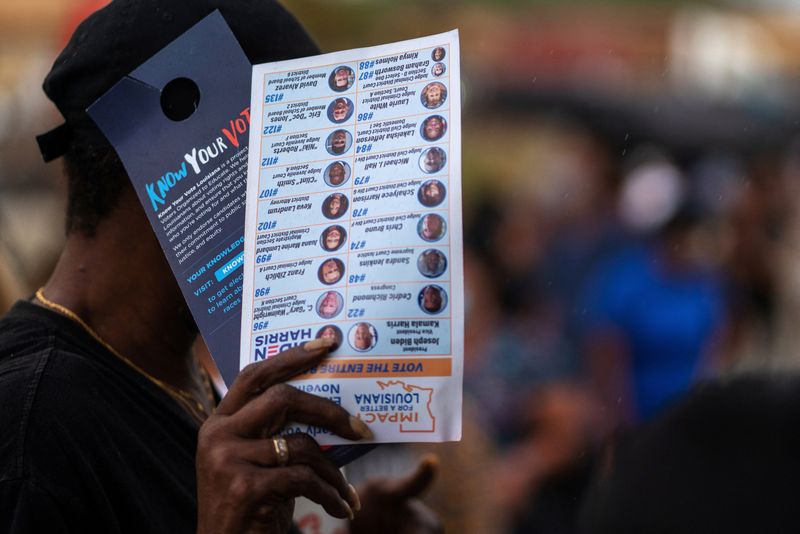By John Kruzel
WASHINGTON (Reuters) - The U.S. Supreme Court preserved - for now - a Louisiana electoral map with two of the state's six congressional districts majority Black - a ruling on Wednesday with implications for the Nov. 5 election that will determine which party controls the U.S. House of Representatives.
The justices granted a request by state officials and a group of Black voters to temporarily halt a federal three-judge panel's decision throwing out Louisiana's newly redrawn map that includes two Black-majority U.S. House districts, rather than the one present in a previous version.
The judicial panel on April 30 ruled 2-1 that the map was chiefly influenced by race in violation of the U.S. Constitution's 14th Amendment guarantee of equal protection, and ordered that a new map be drawn.
The panel's decision was the latest development in a long-running legal fight over the boundaries of Louisiana's U.S. House districts. Republicans hold a 217-213 margin in the House. Ongoing legal battles over redistricting in several states could be enough to determine whether Republicans retain control or Democrats regain a majority.
The Republican-controlled Louisiana legislature approved a new map in January adding a second Black-majority district after U.S. District Judge Shelly Dick in 2022 found that the previous Republican-drawn map illegally harmed Black voters. Dick concluded that the previous map sketched by the state legislature likely violated the Voting Rights Act, a landmark 1965 U.S. law that bars racial discrimination in voting.
The Supreme Court in 2023 left Dick's ruling in place.
Under the map rejected by Dick, Black voters had constituted a majority in only one of the state's six districts, despite comprising nearly a third of Louisiana's population. The legislature then approved a revised version that included a newly created second majority-Black district.
Black voters tend to support Democratic candidates.
In January, a group of Louisiana voters identifying as "non-African American" challenged the Louisiana's newly redrawn map featuring the additional Black-majority district. The challengers argued that the new map was an unconstitutional "racial gerrymander" that violated the 14th Amendment equal protection guarantee, which prohibits states from using race as the predominant factor in drawing electoral districts.
The amendment, ratified in 1868 in the aftermath of the American Civil War, addressed issues relating to the rights of formerly enslaved Black people.
Ruling in favor of the challengers, the judicial panel ordered Louisiana's legislature to produce a new map by June 3. Failing that, the panel could impose its own map, one which would not necessarily include a second majority-Black district, according to legal experts.
Two judges appointed by Republican former President Donald Trump were in the majority in the ruling, with a judge appointed by Democratic former President Bill Clinton dissenting.

The panel's ruling prompted state officials, as well as Black Louisiana voters backed by civil rights groups, to ask the Supreme Court to temporarily halt the decision while they pursue a formal appeal.
Louisiana's Republican Secretary of State Nancy Landry in court filings said that in order to "accurately administer the congressional election" she needs a map in place by May 15.